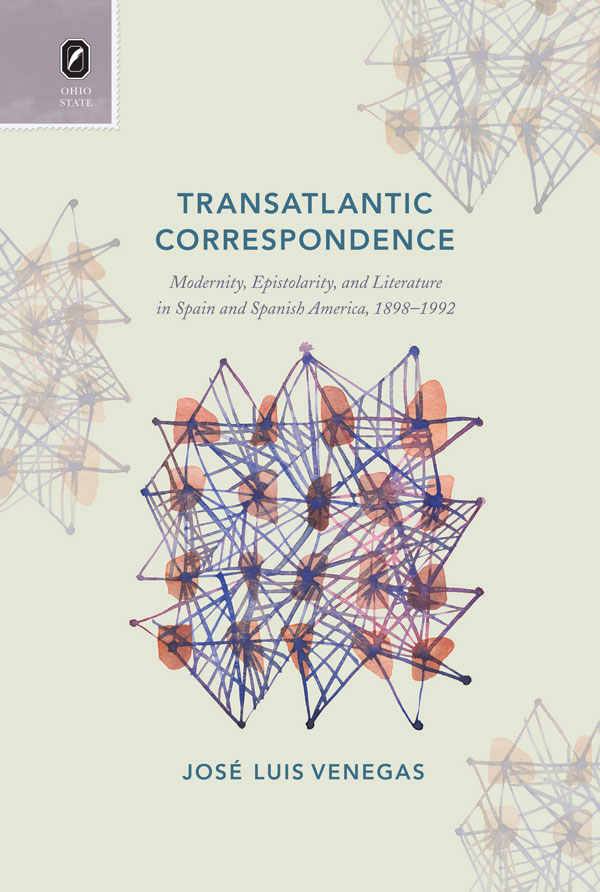Transatlantic CorrespondenceModernity, Epistolarity, and Literature in Spain and Spanish America, 1898–1992José Luis VenegasTransoceanic Studies |
 5/1/2014 Literary Criticism/ 241 pp. 6x9 
$64.95 cloth 978-0-8142-1256-1 Add cloth to shopping cart $27.95 paper 978-0-8142-5294-9 Add paper to shopping cart $14.95 CD 978-0-8142-9359-1 Add CD to shopping cart Shopping Cart Instructions Review/Change Shopping Cart & Check-out | |||
|
“José Luis Venegas situates himself within the critical/ “As in his previous work, it is José Luis Venegas’s original and insightful readings of a wide range of texts from Spain and Latin America that engage me. I have no doubt that scholars in Spanish and Latin American literary and cultural studies will also find Transatlantic Correspondence quite important to their own work.” —James D. Fernandez, New York University Transatlantic Correspondence: Modernity, Epistolarity, and Literature in Spain and Spanish America, 1898–1992 explores how influential Spanish and Spanish American writers used letters in their literary works to formulate distinctive visions of modernity. Bringing into the discussion authors such as Rubén Darío, Miguel de Unamuno, Carmen Martín Gaite, and Gabriel García Márquez, José Luis Venegas reveals unsuspected connections between their literary use of epistolary writing and their opinions about the place of Hispanic culture and civilization within a global context. Transatlantic Correspondence contributes to broader debates on literary transnationalism and the contradictory nature of modernity. Each chapter frames literary works by authors from both sides of the Atlantic within key historical events spanning the loss of Spain’s overseas possessions in 1898 to the commemoration of Columbus’s quincentennial in 1992. This broad range of historical reference is counterpointed by the nuanced examination of a single formal feature in a wide variety of canonical and non-canonical texts. Drawing on insights from postcolonial studies, the book addresses the link between historical transformations that traverse decades and continents and specific stylistic choices in order to foster an understanding of Hispanic literary and cultural studies that is not limited by categories such as “movement,” “generation,” and “national literature.” José Luis Venegas is assistant professor of Romance Languages and Interdisciplinary
Humanities at Wake Forest University. | ||||

